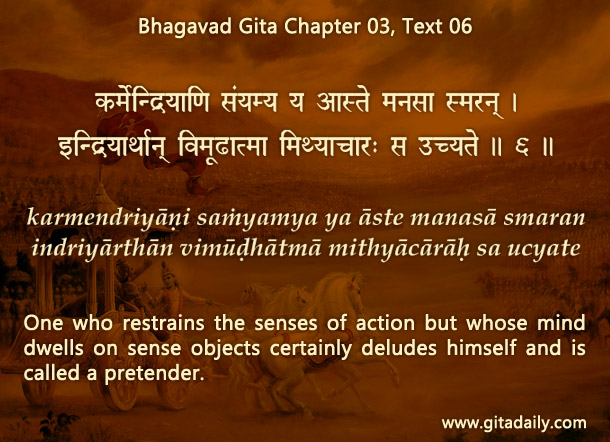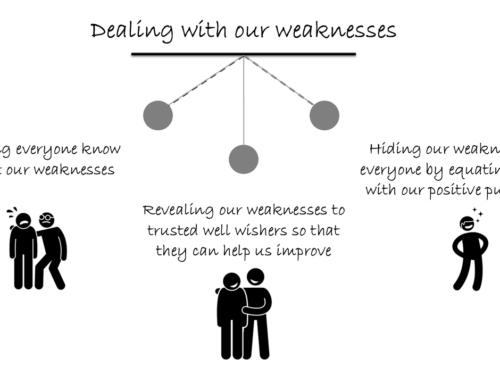Leading a principle-centered life involves a dynamic tension between our aspirations, which are determined by our cherished principles, and our actions, which is often determined by our untamed impulses.
This tension can degrade or elevate us depending on how we respond to it. If we see it pessimistically, thinking that our aspirations are impossibly lofty, then we settle for a substandard existence driven by impulses. We stay degraded or may degrade further from our present position.
Worse than seeing the tension negatively is denying its very existence – not just to the world but also to oneself. Just as patients who deny their sickness to themselves and pretend to be healthy deceive and destroy themselves, so do people who deny their moral weaknesses to themselves. They may bluff the world or even bluff themselves into believing that they are better than what they actually are. But their bluff notwithstanding, the tension between the principles they purport to live according to and the way they actually live becomes so acute and intense that it reaches a flash point. They eventually succumb to atrocious degradation because by their dangerous self-denial, they have completely muted the voice of their conscience. The Bhagavad-gita (03.06) warns that such people not only delude the world but also delude themselves.
Thankfully, there’s a third alternative apart from pessimism and denial: realistic optimism. If we see the tension optimistically, urging ourselves to bridge the gap between the two, then it can inspire us to seek a process for uplifting ourselves. Bhakti-yoga is the best such process because it increases our inner strength by connecting us with the omnipotent source of all strength, Krishna. By that inner strength we can subordinate our impulses to our principles and gradually harmonize our actions with our aspirations.
Explanation of article:



Leave A Comment